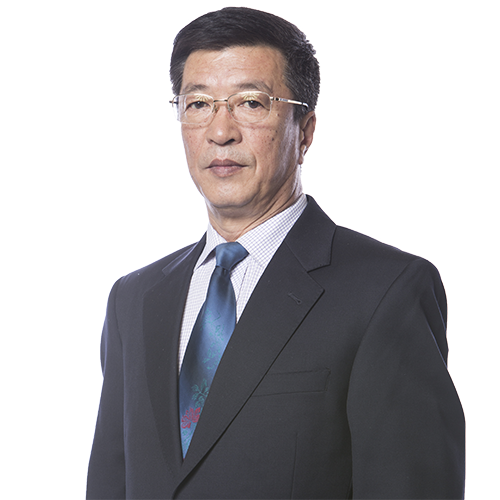On the afternoon of April 18, 2025, the 3rd session of “Criminal Defense Talks” organized by Criminal Department II was successfully held in King&Capital Law Firm. The activities were respectively led by Mr. Jin Jie, senior partner of King&Capital Law Firm, Mr. Tian Wenchang, honorary director and senior partner of King&Capital Law Firm, Mr. Cao Shuchang, senior partner of King&Capital Law Firm, and Mr. Wang Xintong, senior partner of King&Capital Law Firm, and moderated by Mr. Zhang Di of the Department of Business Management.
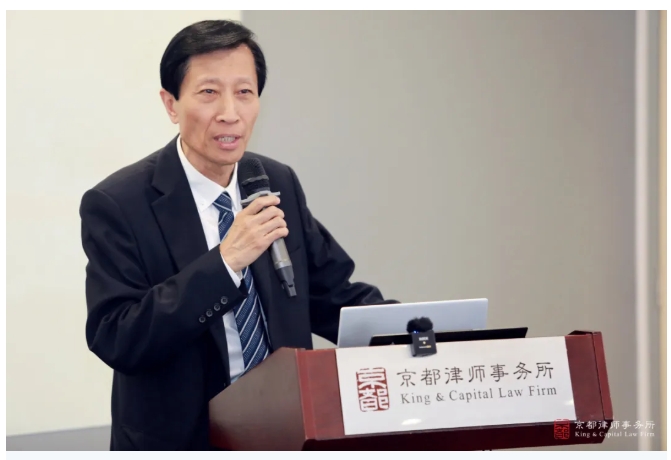
Jin Jie
With the topic of “Lawyers are an irreplaceable and important force in prying criminal retrial”, Mr. Jin Jie shared his experience of representing Hu Mou and Liao Mou for 34 years, and the case of the Supreme People's Procuratorate (SPP) acquitting them after protesting against the case, which has been written into the SPP's work report of 2025, and he shared his experience of the real dilemmas of criminal appeals, the analysis of the causes, and the strategies of coping with the dilemmas. He combined with empirical data to point out that in the past five years, the criminal cases re-tried and re-sentenced by the Supreme People's Court and the cases re-sentenced by the Supreme People's Procuratorate with protest showed significant features - the percentage of re-trial cases triggered by application for protest of procuratorate was significantly higher, while the proportion of parties' complaints initiating re-trial was relatively low. This phenomenon reflects that the vindication of major cases of injustice often depends on the parties and their lawyers perseverance. Jinjie further analyzed the current criminal complaints facing four major dilemmas: First, the retrial filing standards are harsh, the provisions of the “real error” vague, the review of the scale of the lack of clear norms; Second, the judicial resources are limited and the number of complaints of the huge structural contradiction; Third, the complaint review process there is a “idle Thirdly, the complaint review procedure has the phenomenon of “idle”, it is difficult to carry out substantive review; Fourthly, the efficiency of the complaint is extremely low, the complainant is eager to see the problems, also objectively restricts the effective exercise of the right to appeal. In response to these dilemmas, Jin Jie put forward a professional and pragmatic response to the proposal: first, carefully study the original trial defense basis, in-depth study of the basis of the conviction of the original decision; second, choose a good point of entry, not everything, to focus on breakthroughs, and carefully analyze the reasons for the formation of the guilty confessions; once again, to find the evidence gaps, targeted to strengthen or review of the key evidence. He emphasized that the complaint should be written in a focused manner, with the purpose of prying the retrial, and maintaining positive communication with the case-handling authorities.
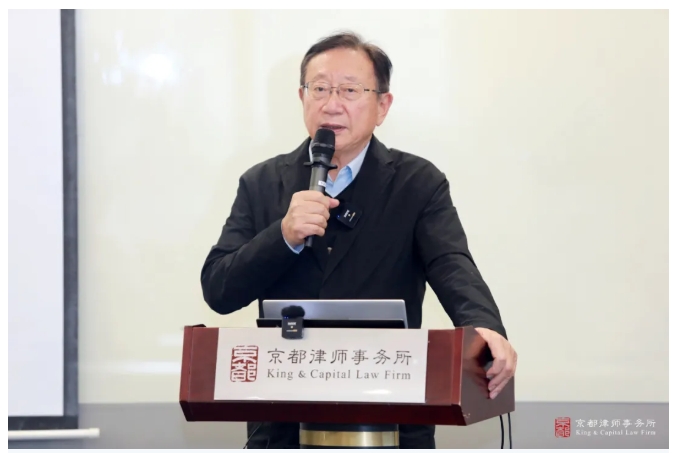
Tian Wenchang
Mr. Tian Wenchang pointed out that in China's criminal justice practice, criminal complaint is an important way to rectify wrongful cases and safeguard judicial justice. However, although there is a lot of space in the relevant laws, it faces many dilemmas in actual operation. First of all, although the law does not strictly limit the conditions of the complaint, but in practice, the court often requires the complainant to provide “new evidence”, and the discovery and retrieval of new evidence is extremely difficult, resulting in many complaint cases in the filing stage was rejected. The problem lies even more in the fact that new evidence as a condition for filing a complaint is not sufficiently justified, and in practice it is not uncommon for cases to be corrected on the basis of the original evidence. Second, the “review before filing” model raises the bar for filing a complaint. The current appeals process usually requires the court to conduct a substantive review first and decide whether to file a case for retrial only if the conditions are met. This model has resulted in a large number of appeals remaining at the review stage for long periods of time, making it difficult for them to enter the formal retrial process and creating the judicial chronic problem of “difficult appeals”. In addition, petition and complaint procedures cross parallel, so that some parties have to pressure through the petition channel, and even into the “complaint - petition - complaint” cycle, not only increase the burden of justice, but also weakened the standardization of the complaint system. To address these problems, Tian Wenchang suggested to promote the “third trial” reform, that is, on the basis of the existing two trial system, the establishment of a special procedure, on the major, difficult cases or there are obvious judicial error of the case for the third level of review, in order to enhance the ability to correct the error. At the same time, Mr. Tian believes that lawyers, as members of the legal professional community, should identify problems and summarize experiences in individual cases, actively put forward opinions and suggestions to promote the development of the complaint system in a more standardized and effective direction, and promote the progress of the rule of law through individual cases, and not only accurately apply the law in representing the complaint cases, but also uphold the social responsibility, and promote the fairness of justice with their professional ability and professional sentiments.
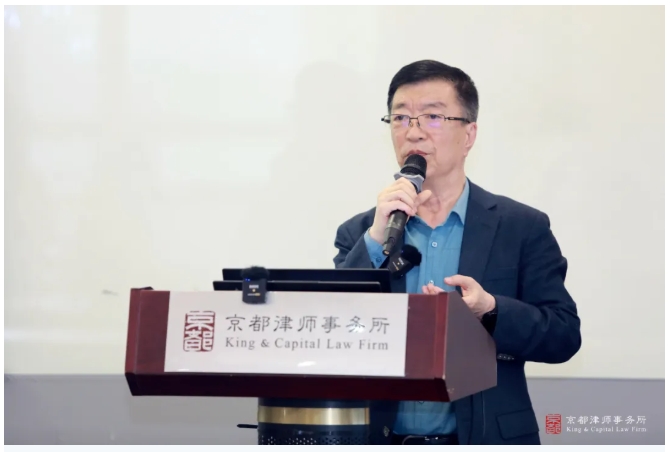
Cao Shuchang
Based on years of practical experience, Mr. Cao Shuchang points out that the success rate of less than 3% of the already small number of appeal cases reflects the difficulties of the appeal system in practice. From the level of legal norms, although Article 253 of the Criminal Procedure Law stipulates several circumstances that should be retried, including “there is new evidence to prove that the original judgment, the decision to determine the facts of the fact that there is a real error, may affect the conviction and sentence,” “based on the conviction and sentence of the evidence is not true, insufficient,” and so on, but in actual practice, these standards are often difficult to grasp. Cao Shuchang emphasized that lawyers should focus on three core elements when assessing the appealability of a case: first, the possibility of obtaining new evidence and its probative power; second, whether there are fundamental flaws in the original trial's evidence system; and third, whether the application of the law is indeed erroneous. Among them, the ability to find and fix the key evidence that can shake the original trial's factual determination often becomes the decisive factor for the success or failure of the complaint. In view of the current difficult situation of the complaint, Mr. Cao Shuchang proposes some breakthrough paths: firstly, lawyers should establish a dynamic knowledge updating mechanism, pay close attention to the changes of criminal justice policy and the introduction of the latest laws and regulations, which may bring new breakthroughs for the complaint cases. Secondly, special attention should be paid to the review of core evidence that plays a decisive role in the conviction and sentence, and the weak links in the chain of evidence of the original trial should be identified through professional analysis. Finally, he called for the improvement of the judicial accountability mechanism, suggesting that the specific implementation details of the system of lifelong accountability of judges be refined to make the accountability for wrongful convictions more operable, thus forcing the judiciary to pay more attention to the substantive review of complaint cases.
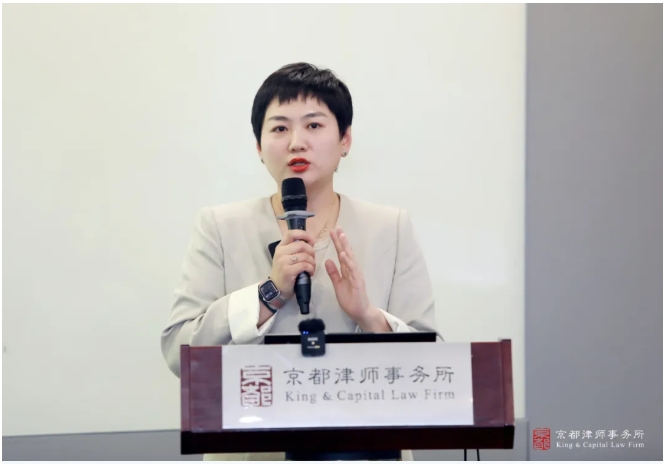
Wang Xintong
Wang Xintong analyzes the practical difficulties of criminal complaints and possible breakthrough paths from a multi-dimensional perspective. At the level of judicial practice, Mr. Wang points out the judicial dilemma of “difficult to acquit”. After a case has been decided, the correction of wrongful convictions requires huge judicial costs and social resources, and this high cost of correcting wrongful convictions makes many cases that should have been vindicated stay in the complaint process for a long time. During the long appeal process, families not only have to bear huge psychological pressure and pay corresponding economic costs, but also may have to face the lack of understanding of friends and relatives and the pressure of social opinion. Mr. Wang especially emphasized that the tenacity shown by many of the parties and their families is touching, and this persistence itself is a strong call for justice. At the technical level, Mr. Wang believes that modern genetic technology and other scientific and technological developments have provided new breakthroughs for criminal complaints. Criminal defense lawyers should pay attention to the technical development in the field of professional appraisal, and be good at using professional and technical means to find breakthroughs in cases through solid evidence analysis. At the same time, she emphasized the importance of keeping an open mind based on the facts of the case, switching the defense strategy at the right time, and seeking innovative breakthroughs within the professional framework. The successful advancement of the complaint cannot be separated from the daring judicial workers, who take the facts as the basis, take the law as the criterion, take the evidence review as the lifeline of the trial quality, and dare to correct the mistakes. Only by adhering to this fundamental guideline can justice be maintained.
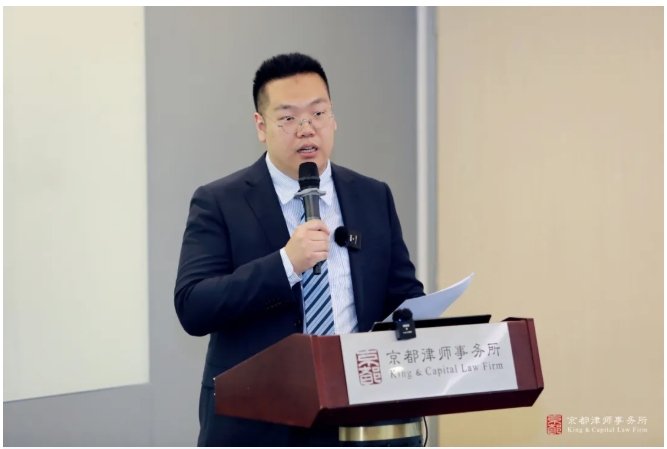
Zhang Di
In the wonderful interactive Q&A session, the moderator Zhang Di, with his keen professional perspective, asked Mr. Jin Jie a very realistic question: “For young lawyers, what key points should be paid special attention to in the process of handling complaint cases?” Jin Jie lawyer combined with many years of practical experience to give a profound and pragmatic advice: “young lawyers need to use professional legal thinking to promote the case to make substantial progress, to deeply realize that the complaint work is a protracted war, which not only test the lawyer's professional ability, but also test its professional perseverance and the rule of law beliefs. In this process, it is equally important to cultivate the quality of perseverance and establish a firm belief in the rule of law.”
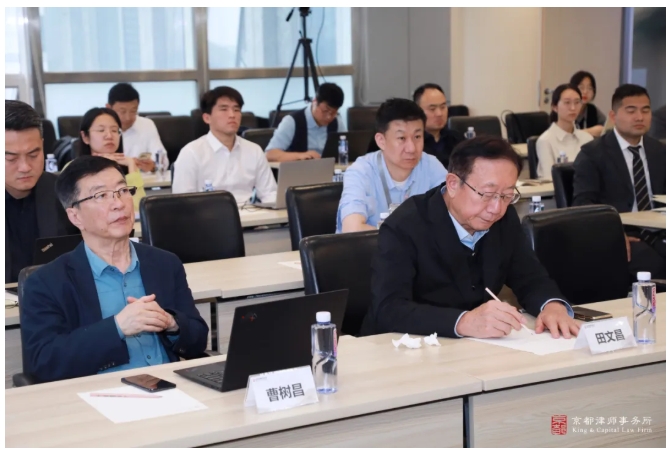
The 3rd session of “Criminal Defense Talk” came to a successful end amidst the applause, and the guests and audience expressed that they had gained a lot, and had a deeper understanding and thinking about the field of criminal complaint.






